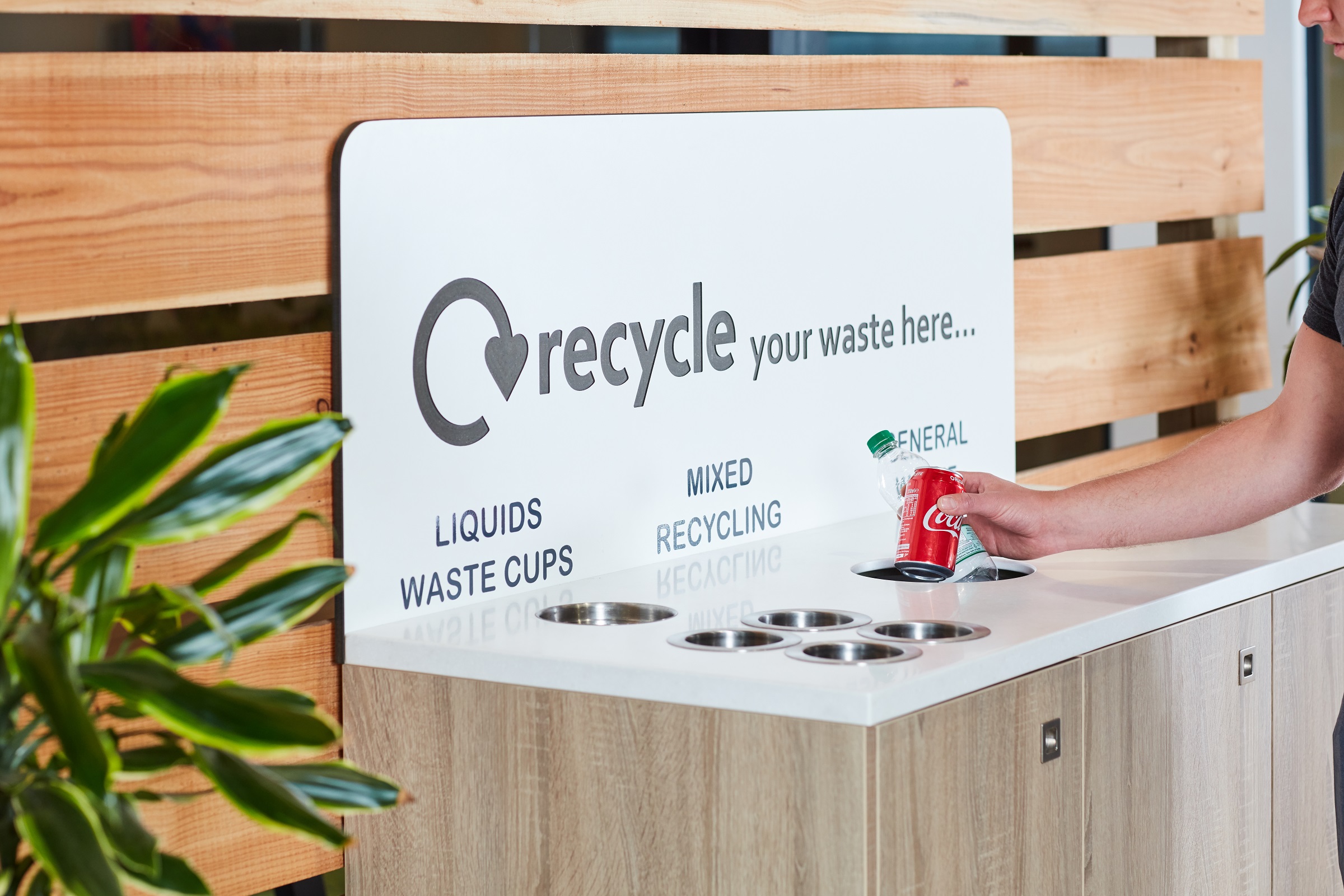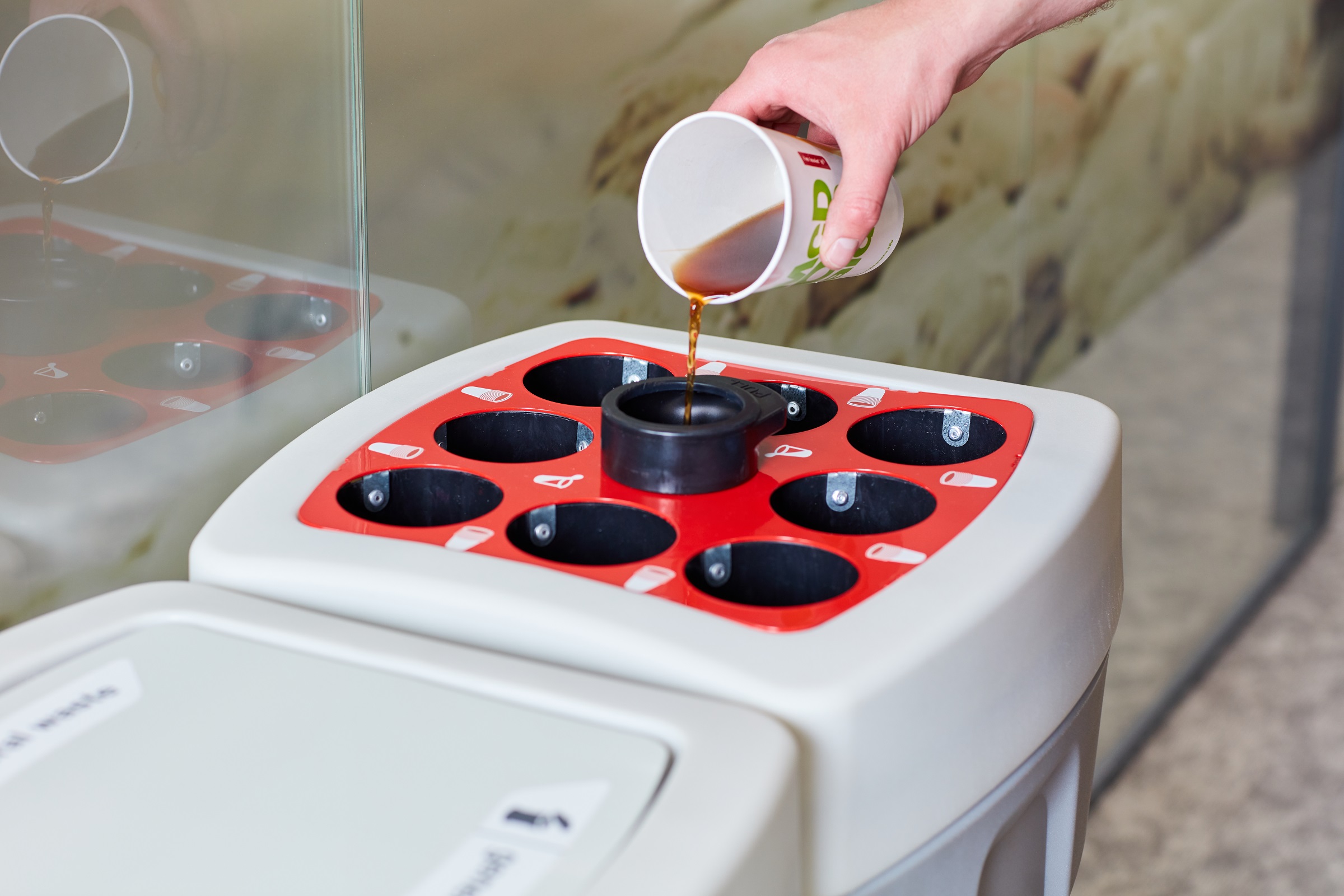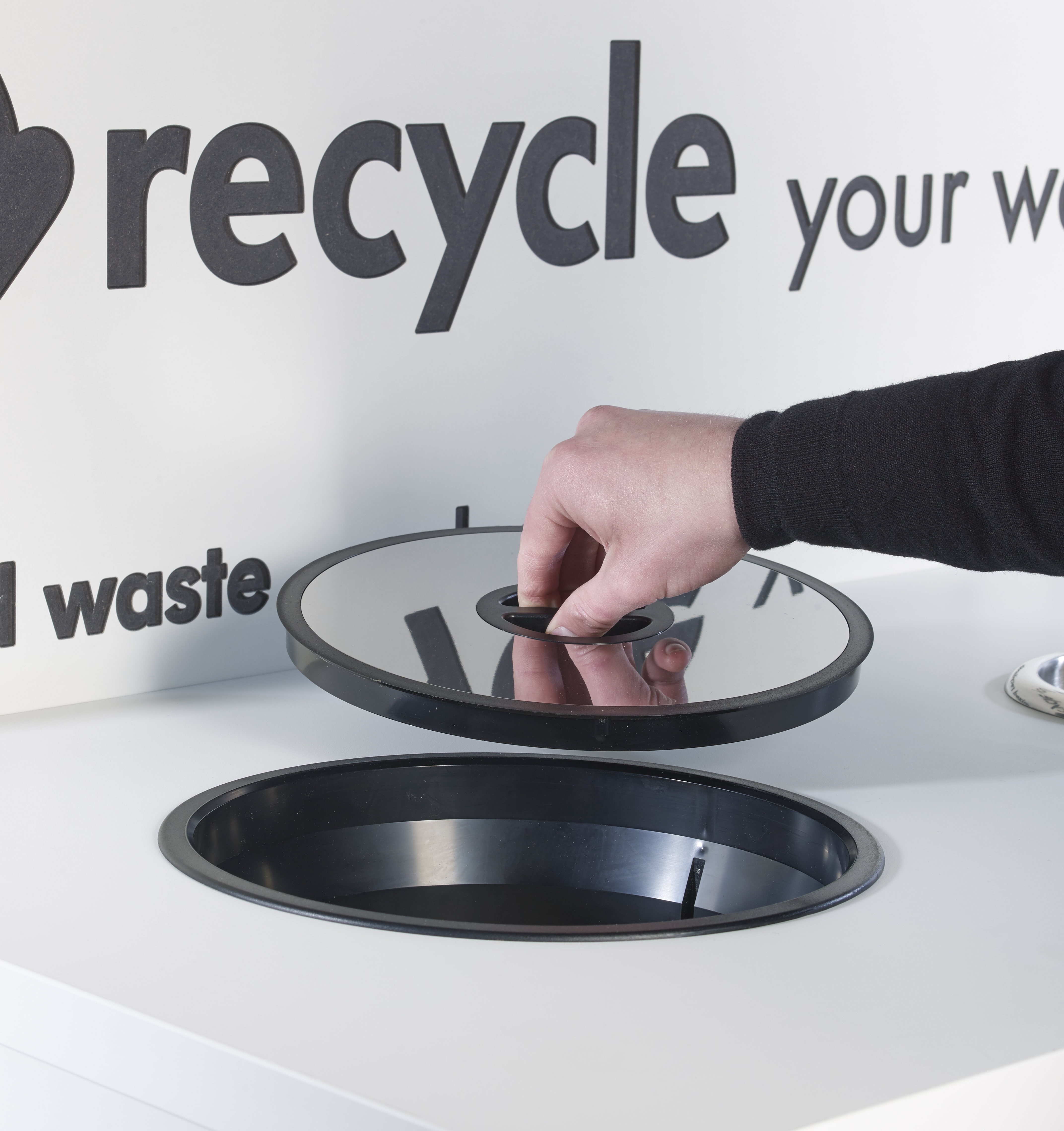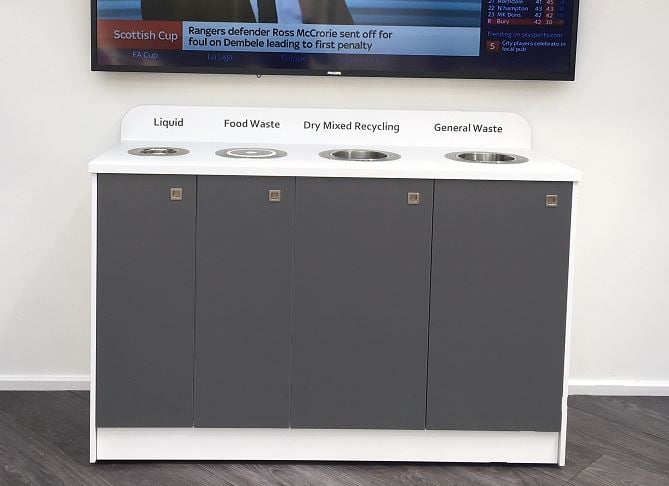Food glorious food, there’s nothing quite like it, but how do we manage the food waste we leave behind.
67% of office workers confess to eating their lunch at their desks. I suspect we would all confess to eating the odd (in my case the frequent) doughnut, cake, cookie, packet of crisps or piece of fruit in between lunch breaks too. Add it all up and that’s a whole lot of food circulating around the office at any given time. Naturally, with food comes food waste.
So, given we are all food lovers, how do we manage food waste in the office?
First things first. Before we even consider how to manage waste, we should promote the reduction of it. Less is more when it comes to managing food waste in any environment. In accordance with the 3 R’s and the Hierarchy of Waste, we should always look to reduce the food resources we use.
With food & drink accounting for 20%† of the UK’s CO2 emissions, reducing how much we waste also helps towards your Corporate Sustainability goals. Think about:
- Supplying fruit to your office workers: That way you reduce the amount of fruit individual workers need to bring into the office on a daily basis. Fruit, once brought into work, gets bruised and therefore thrown away if not eaten soon..
- Treat Days: Set up a rota and promote treat days in advance. So, if you are intending to treat your team to pizza, tell them in advance so they don’t then ditch their lunch box.
- Fridge Rota: Set up a clean fridge rota – each Friday, delegate someone to clear out the fridge and hand back all food approaching a use-by date to its owner. If no owner found, donate to the nearest food bank.
- Provide a freezer: Where space allows, consider providing a freezer as well as a fridge within the staff canteen / break out room.
- Set up a community shelf: A bit quirky, but allocate a shelf in the office fridge for the leftover pizza slice – I guarantee someone will eat it. I guess the same principle would work for fruit, the leftover flapjack from the BOGOF offer – you get the drift.
So, onto how to manage food waste. Here are few ideas you could look at.
As with any campaign, awareness is key. Set up a known place where food waste belongs and then use the opportunity to clearly signpost correct waste segregation.
In this example, food waste was specifically positioned between Liquids & Dry Mixed Recycling (DMR). Why? Well, think about the average meal deal. For optimum waste segregation, you’d want to get rid of liquid first, then your food, then ditch the drinks bottle, sandwich wrapper in DMR and then as a last resort place waste into general waste (for landfill / incineration).
#2 – Hookup with local charities
There are countless charities that would happily take away food that would otherwise be wasted. Naturally, food that has been nibbled on would not fit into this category, neither would food scraps. But, think about it – it’s a great way to do the right thing whilst also reducing your waste collection costs as charities would collect free of charge.
#3 – Find a Farmer
Farmers are often looking for food scraps to use as animal feed. You may be able to agree some kind of exchange deal i.e. milk.
Failing that, find a gardener (for veg/fruit scraps). Do you have one at work?
#4 – Find a waste collection company that works with your sustainability goals.
Not all waste collection companies are the same, and not all accept food waste. If your current waste collection company can’t collect food waste, or can’t collect on your tems, find one that will. You’ll be surprised how many there are these days. Here’s a few questions you might like to ask a waste collection company before making your final decision.
- Can all food waste types be accepted?
- What happens if the wrong materials get put in the recycling bin?
- What types of containers will be provided?
- What are the implications on pricing for overfilled bins?
- What are the typical frequencies that bins can be emptied?
- Is the frequency convenient for your business and the amount of waste produced?
- Are there typical collection times?
- Are there any site access requirements?
- Will we be charged by weight or for each time the bin is emptied?
- What additional items and services can be offered for an extra charge?
- Is there a discounted rate for additional bins?
- Is there a cost increase annually / after the first year?
- Are there any incentives offered to maximise recycling?
- What are the options for reducing rubbish bin capacity or frequency following “bedding-in” period?
- What is the process for contract amendments?
- What is the contract termination process?
At Unisan UK, we provide game-changing solutions that enable our customers to rethink their traditional approaches & demonstrate their commitment to environmental sustainability, whilst making recycling easier and more efficient.



Keen to learn more?
† http://www.wrap.org.uk/food-waste-reduction

